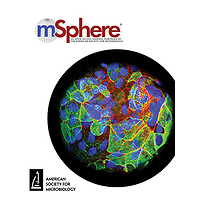Sir2 protein of Plasmodium falciparum has been implicated to play crucial roles in the silencing of subtelomeric var genes and rRNA. It is also involved in telomere length maintenance. Epigenetic regulation of PfSIR2 transcription occurs through a direct participation of the molecular chaperon PfHsp90, wherein PfHsp90 acts as a transcriptional repressor. However, whether the chaperonic activity of PfHsp90 is essential for the maturation and stability of PfSir2A protein has not yet been explored. Here, we show that PfSir2A protein is a direct client of PfHsp90. We demonstrate that PfHsp90 physically interacts with PfSir2A, and the inhibition of PfHsp90 activity via chemical inhibitors, such as 17-AAG or Radicicol, results in the depletion of PfSir2A protein, and consequently its histone deacetylase activity. Thus, derepression of var genes and ribosomal silencing were observed under PfHsp90 inactivation. This finding that PfHsp90 provides stability to PfSir2A protein, in addition to the previous finding that PfHsp90 downregulates PfSIR2A transcription and subsequently cellular abundance, uncovers the multifaceted roles of PfHsp90 in regulating PfSir2 abundance and activity. Given the importance of PfSir2 protein in Plasmodium biology, it is reasonable to propose that the PfHsp90-PfSir2 axis can be exploited as a novel druggable target. IMPORTANCE Malaria continues to severely impact the global public health not only due to the mortality and morbidity associated with it, but also because of the huge burden on the world economy it imparts. Despite the intensive vaccine-research and drug-development programs, there is not a single effective vaccine suitable for all age groups, and there is no drug on the market against which resistance is not developed. Thus, there is an urgent need to develop novel intervention strategies by identifying the crucial targets from Plasmodium biology. Here, we uncover that the molecular chaperone PfHsp90 regulates the abundance and activity of the histone-deacetylase PfSir2, a prominent regulator of Plasmodium epigenome. Given that PfSir2 controls both virulence and multiplicity of the parasite, and that PfHsp90 is an essential chaperone involved in diverse cellular processes, our findings argue that the PfHsp90-PfSir2 axis could be targeted to curb malaria.Malaria continues to severely impact the global public health not only due to the mortality and morbidity associated with it, but also because of the huge burden on the world economy it imparts. Despite the intensive vaccine-research and drug-development programs, there is not a single effective vaccine suitable for all age groups, and there is no drug on the market against which resistance is not developed.

Heat Shock Protein 90 Regulates the Activity of Histone Deacetylase Sir2 in Plasmodium falciparum
Review badges
3 pre-pub reviews
0 post-pub reviews